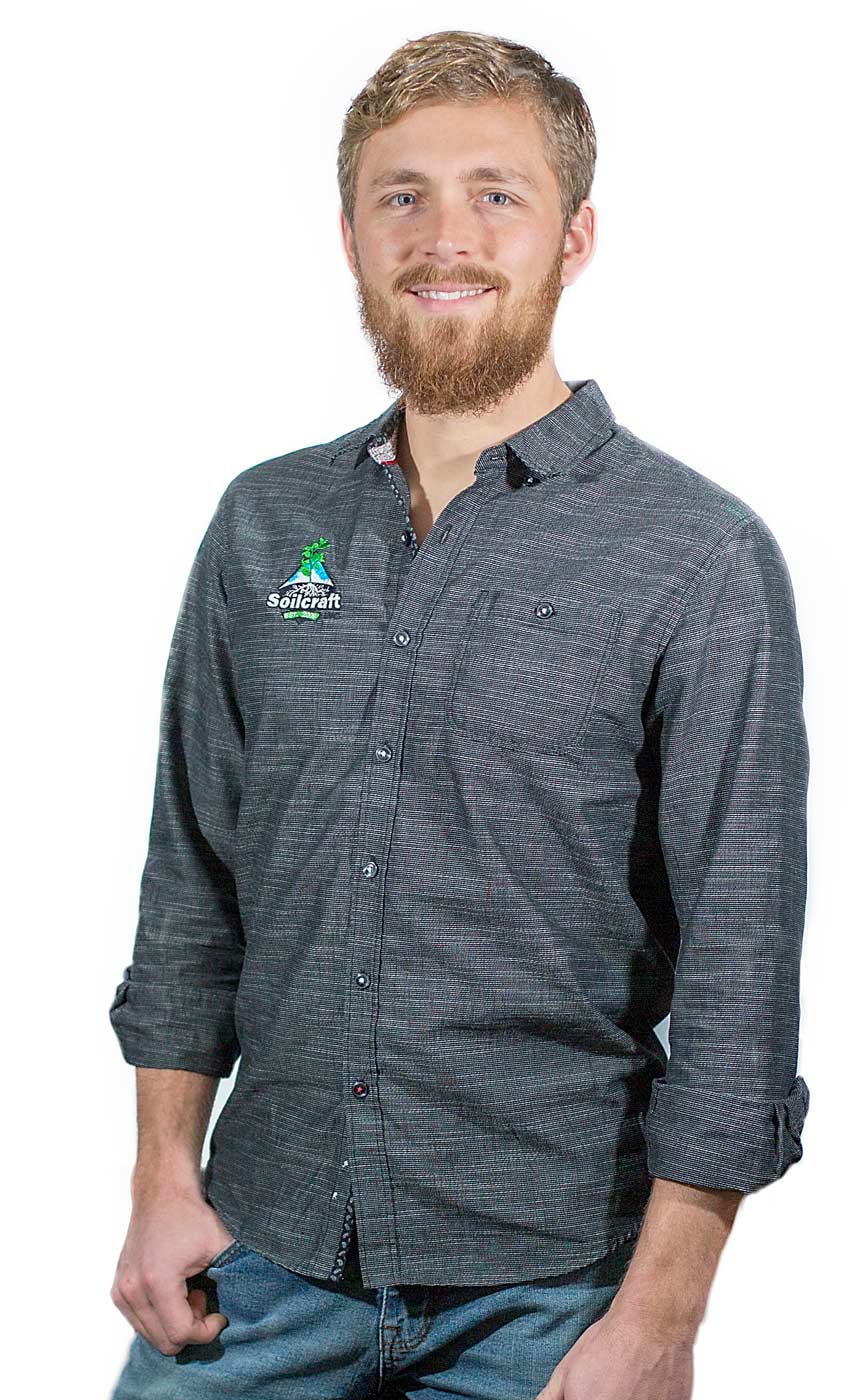family background / Trent is a first-generation farmer who started growing cherries alongside his wife, Shelly, and father-in-law, Dwayne Bowman. His primary job as an agronomist for Soilcraft Inc. has helped him to finance his cherry blocks.
age / 28
crops / Cherries
business / Eden Acres and Soilcraft Inc.
 How did you get your start?
How did you get your start?
I pretty much fell into agriculture when I married into a multigenerational farming family.
I got excited about ag after my father-in-law said that I should attend some seminars about nutrition, fertility, soil biology and yields with him.
As I worked with him, I had an opportunity to buy into an existing farm. I was somewhat reluctant at first, but I’m glad that I did.
What has helped you finance the farm?
My full-time job. I work as a consultant doing soil and tissue sampling and sap analysis for growers and build fertility recommendations based on what they are growing.
Depending on whether they are growing organic or conventional, I have different things we can do for those growers. One of the things I focus on is helping growers reduce some of their crop inputs — especially concerning pests and disease — through correctly managing nutrition.
What was it like the first couple years?
Starting out with my own farm has been tough from a growing standpoint. It’s hard buying equipment on a tight budget to farm a few acres.
I’m thankful for the equipment support and training from my father-in-law. Having the second job helps me with the farm, because I can now use my own farm to experiment with techniques and products that I want to use.
What have you learned working both jobs?
It’s been huge, because I get to interact with crop advisors and agronomists who teach from a fertility management perspective.
As a young grower, knowing what to do and what not to do has helped me manage my farm. Some of the best things I’ve gained from working with other growers has been talking about new technology, mechanization, different orchard training systems, varieties, root stocks — good and bad experiences.
I’ve learned about many different crops, too, giving me a broader range of ideas and information that I can use in my career.
Why are you a grower?
My passion is fertility and nutrition. Probably the most exciting area for me right now is learning how pests, diseases and insects can be influenced by nutrition.
One of the things I’ve learned this year was aphid control. I learned they are attracted to high nitrate in the plant sap. Some of the mineral nutrition that affects high nitrates are magnesium molybdenum. Knowing this, I did some molybdenum applications, foliar sprays and drip irrigation trials.
I found within several days the aphids left and never came back. Trials like this are exciting to me because I’m learning, slowly, about why some insects come or why other issues show up.
Instead of just going out and killing these pests by medicating the problem, I want to go to the root of the problem and try to find out what is attracting these pests.
Are you looking at more organic practices?
An area of growth in organics may come from a greater understanding of soil biology — how bacteria, fungi, etc., affects plant growth and fruit quality.
When you apply an intense biological program to stimulate that soil, I’ve seen incredible responses in tree growth, reduction in diseases and yield.
Growers must understand what is going on in their soil. Soil has so often been looked at just as a growing medium — it holds up the plant. Obviously, that’s not true.
Understand that soil is a living organism with many things growing and living in it. Once you understand that, realize that some traditional farming practices that we do to the ground are hurting parts of a healthy soil system.
It’s a whole ecosystem down there that affects the top growth of the plant. If we short-circuit something in the soil, sometimes it’s hard to create healthy soil biology.
What advice do you have to other new farmers?
My advice would be to spend as much time as you can learning from older farmers, people who have years of experience.
Ask questions and get a job working alongside them for a few years to learn the hands-on things.
When I started out, I just dove right in, having no prior practical experience. Learn from their successes and failures and try to not be afraid of moving forward.
My father-in-law has always been the type to try new things, saying however, “keep an open mind, but not so open your brains fall out.”
– by TJ Mullinax






Leave A Comment